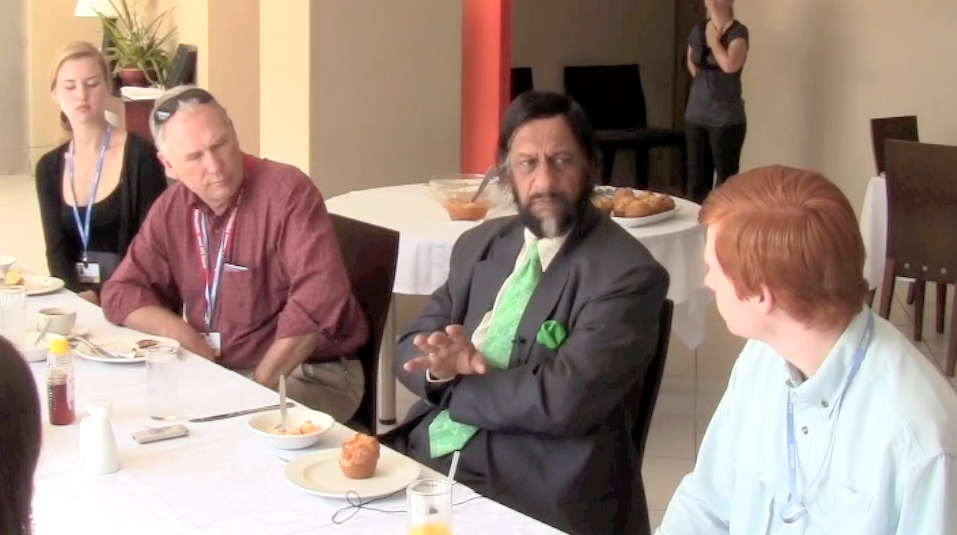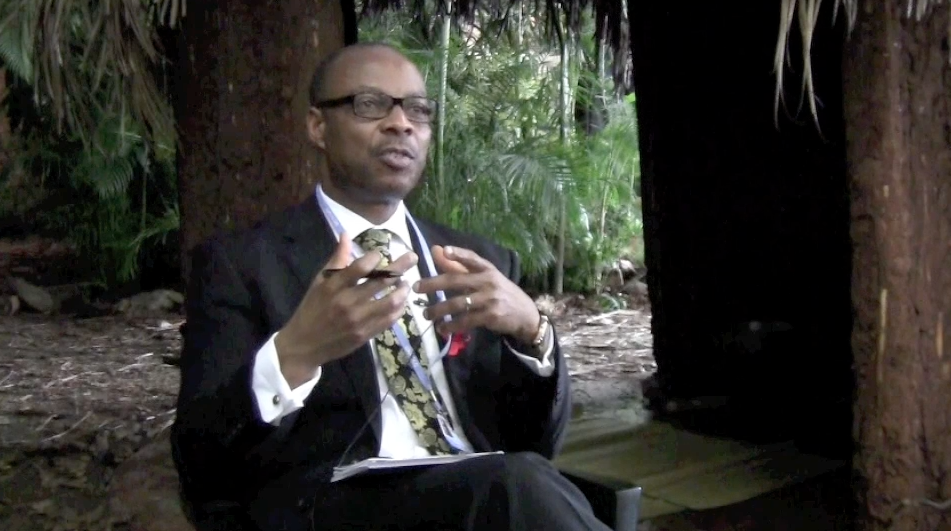Dr. Rajendra K. Pachauri, Chairperson for the Intergovernmental Panel on Climate Change, discusses how his expectations for COP17 in the areas of REDD, funding, and adaptation have not been met. He explains that if they were met it would mean significant progress for climate change, not necessarily major steps, but something to build on. He expresses a fear for the current level of confidence in the system.
Interviewed by the Dickinson Climate Mosaic on December 7, 2011, COP 17, Durban, South Africa


